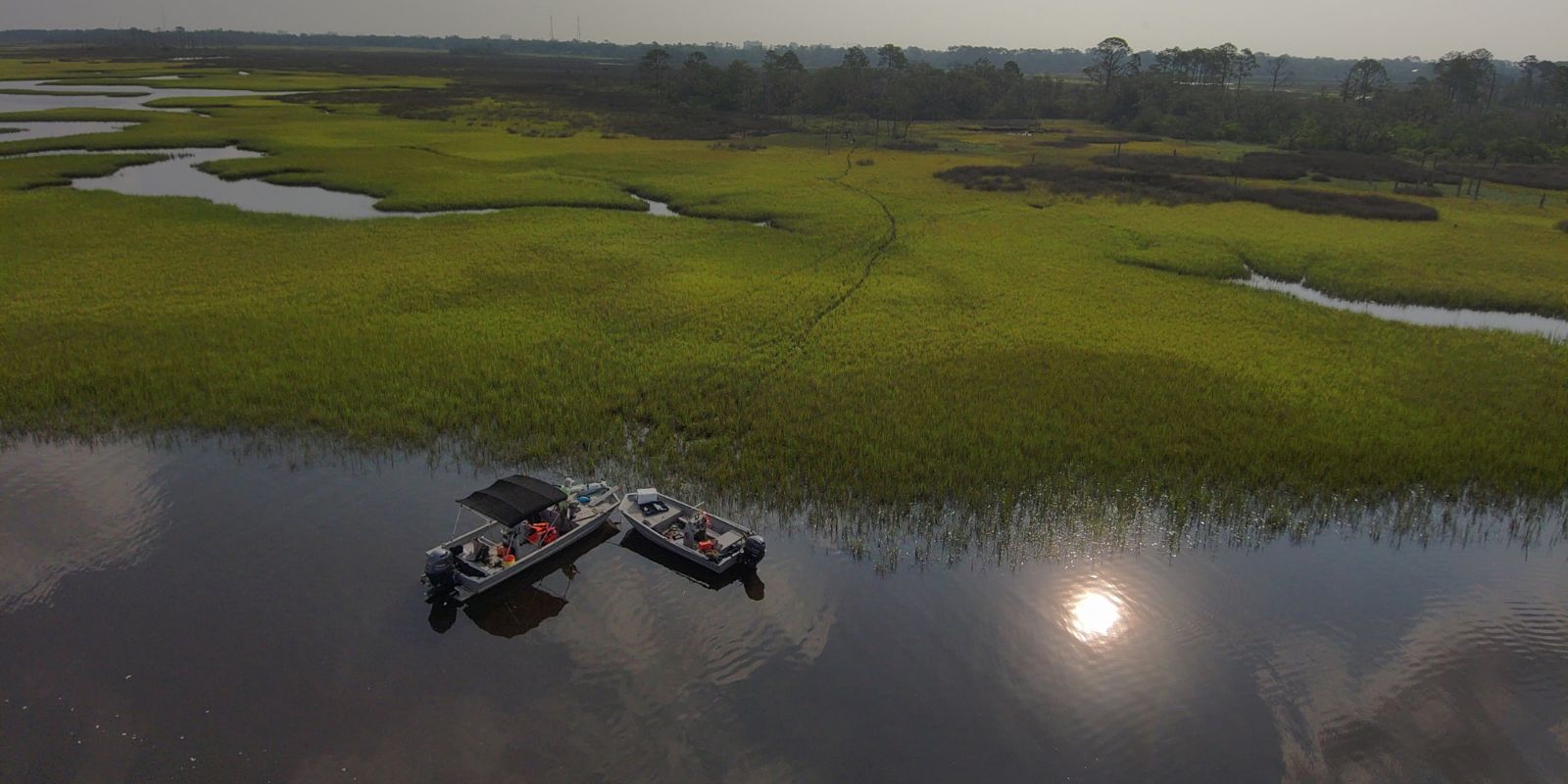UNF Webb Summer Research Program: Safeguarding Coastal Wetlands for the Future
Assistant professor of biology, Dr. Scott Jones, along with his dedicated team of students at the University of North Florida, have been deeply immersed in the Webb Summer Research Program, an intensive endeavor focused on the intricate domain of coastal science. At its core, their research initiative revolves around the meticulous surveillance and study of UNF's sprawling 1000-acre coastal salt marsh, a thriving ecosystem that stands as a testament to the program's commitment to preserving and comprehending our coastal environments.
In late 2017, the University of North Florida received a remarkable gift—a sprawling 1,050-acre saltmarsh wetland property valued at $8.8 million. Situated primarily in Duval County but extending into St. Johns County, this expansive tract of land stretches from just south of Beach Boulevard to Marsh Landing, hugging the eastern banks of the Intracoastal Waterway. The generous donation came from Dan Webb, the president of Widan Investment Corporation, in honor of his father, William C. Webb. This pristine piece of nature is affectionately referred to as the "Webb Property" for now and houses the William C. Webb Coastal Research Station. Given its proximity to the university, the property serves as an invaluable resource for students and faculty to conduct research, offering potential opportunities for biology classes and labs.
The primary objective of this endeavor is to assess and safeguard the overall well-being of these coastal wetlands. To achieve this, the team is conducting comprehensive evaluations encompassing tree recession, plant health, soil conditions, and water quality. Starting at the beginning of this year, Dr. Jones and his students have conducted multiple field visits, amassing preliminary imagery and survey data with invaluable contributions from Robert Richardson. This year, their emphasis is on gathering foundational data and implementing the necessary infrastructure for long-term monitoring. To prepare for this extended undertaking, they have established surface elevation tables in collaboration with the National Park Service (NPS) and will soon deploy water quality monitoring stations across the research site. These elevation tables will be regularly inspected every quarter, while water quality assessments will be conducted monthly.
Shannon Brew, a senior biology student, has provided her valuable insights into the project. Her involvement dates back to January of the previous year when she began as a lab assistant. Brew brings with her prior experience gained from an REU (Research Experience for Undergraduates) program at the University of Central Florida during the summer of 2022. In addition to her contributions to the team effort, Brew is concurrently working on her independent project. Her research involves a comparative analysis of soil health between two distinct sites: a natural island and a man-made island. The outcomes of this project hold significant implications for informing future restoration endeavors involving dredged materials.
The overarching objective of this long-term monitoring initiative is to delve into the dynamics of coastal wetland health and observe how these ecosystems evolve. This research holds considerable promise in advancing our understanding of coastal science and fostering sustainable practices in preserving these vital natural environments. The university remains thankful for the Webb Foundation's support in making this critical research possible.
Story by Karina Miller.

